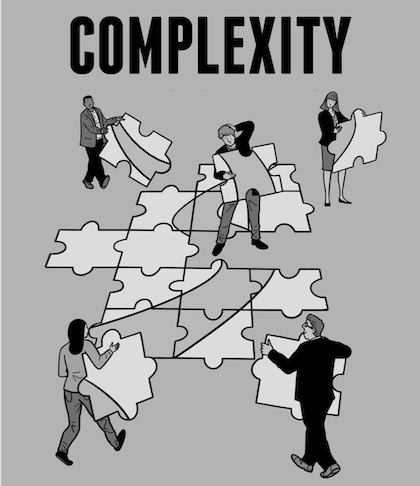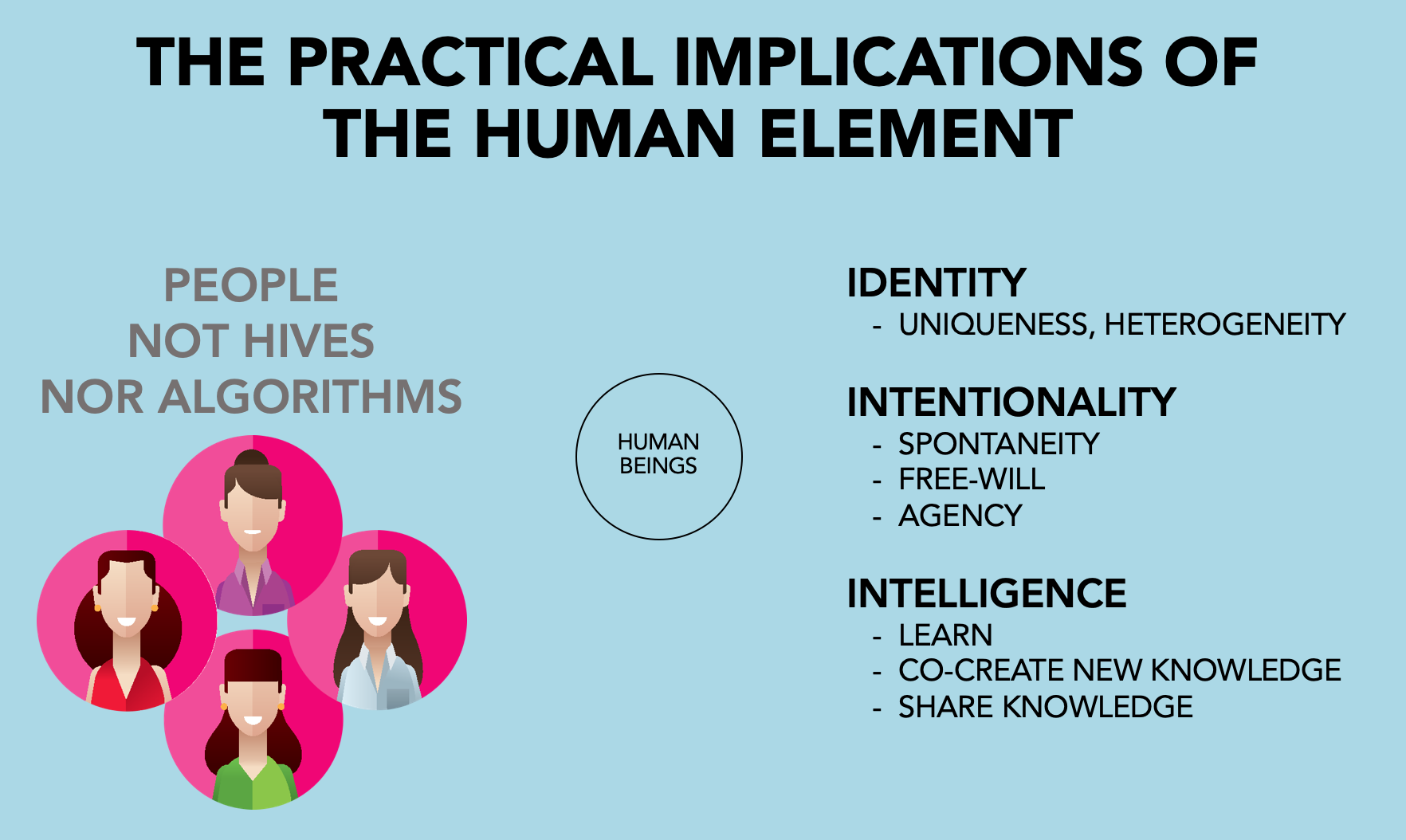The practical implications of the Human Element
The human element is often referred to as ‘soft‘ in the team-work literature and in management literature. Think about ‘soft-skills‘ for example. But in reality, the practical implications of the human element are hard and very tangible.
This is true in all sectors: in Software Development, as well as in Financial or Legal services, as well as in Civil and Mechanical Engineering. Regardless of the type of activities that one is doing: creative thinking and decision-making activities and all cognitive activities, as well as in linear process activities and repetitive predictable low-variability activities.
For example, the human element at the team level is fundamental to improve:
- Effectiveness:
When you want to avoid delays caused by the hands-overs, the re-work caused by the misunderstandings, and solve difficult cross-disciplinary problems => the ability to collaborate in a fluid, synchronous, non-scripted way, across functions and departments is essential. - Innovation:
When you are dealing with new endeavours and so you need to bring together a diverse skillset, give space to creativity, let the end goals emerge gradually => the ability to co-create and be comfortable with sharing your creative space with others and with uncertainty, ambiguity and change is essential. - Speed and agility:
When you are trying to increase speed and agility, to adapt quickly to the evolving circumstances, to be resilient to mistakes and local failures as well as unexpected events => it is people’s intelligence and initiative the most flexible element in the organisation.
The same is true at the organisation level. I don’t need to tell someone smart like you how the division of labour, standard job-role descriptions and any RACI matrix prevents you from using your full potential. How performance appraisal based on yesterday’s goals and criteria limit your ability to do the right thing today. How traditional Change Management applied to your intellectual work prevents you from expressing your natural creativity and from being innovative. Etc.
Traditional organisations may try to limit individuality (because they are optimised to deal only with standard work, and they may misinterpret harmony as suppression of diversity and dissent), they may try to limit initiative (because they are optimised to follow only standard processes as in the old assembly-line) or they may try to “limit” information and intelligence (because the thinking is delegated only to those at the top).
So what is the Human Element then?
IDENTITY: Among all the people that we know, and every human being who ever was, no two are the same (watch this emotional video). Each one of us is unique, we are heterogeneous. This can protect us from groupthink and blind spots.
INTENTIONALITY: We have free-will, we have agency, we are spontaneous. When we have the freedom, can act, adapt and react quickly.
We are driven by more than instincts, pain or pleasure, needs or desires. But by beliefs, values, principles, sentiments, emotions, intuition, irrationality, and much more.
INTELLIGENCE: We can learn and co-create new knowledge as well as share it. Because we are social.
Social Complexity and Anthro-Complexity study these characteristics of the human element and they study the Human Complexity as well as Human Self-Organisation and Emergence (of common understanding, collaboration patterns, structures, consensus, goals, solutions). Below are a few quotes I’ve collected from Nobel Laureates and world renewed scientists on this topic.
<< This web of life, the most Complex system we know of in the universe, breaks no law of physics, yet is partially lawless, ceaselessly creative >> – Stuart Alan Kauffman
<< Nature is indeed related to the creation of unpredictable novelty, where the possible is richer than the real >> – Ilya Prigogine
<< The future is uncertain… but this uncertainty is at the very heart of human creativity >> – Ilya Prigogine
<< It is this order of interweaving human impulses and strivings, this social order, which determines the course of historical change >> – Norbert Elias
<< We are agents who alter the unfolding of the universe >> – Stuart Alan Kauffman

Navigate everyday Complexity.
See how we can help.
You, your team, your organisation.
